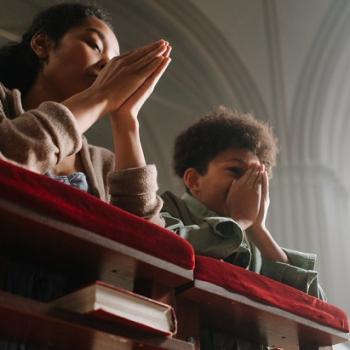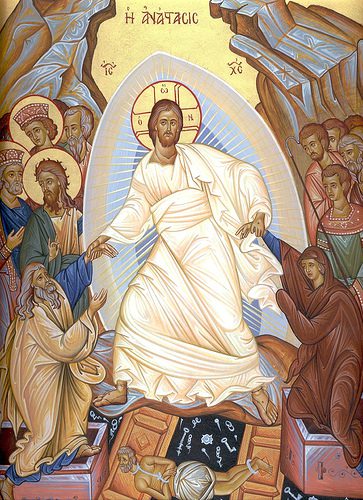By Fr. Lazar Arasu, SDB
“Do not be conformed to this world, but be transformed by the renewing of your minds, so that you may discern what is the will of God—what is good and acceptable and perfect.” (Romans 12: 2, NRSV).
The words of St. Paul written to the Christians during the first century are given new life in the words of Pope Francis: “The great danger in today’s world, pervaded as it is by consumerism, is the desolation and anguish born of a complacent yet covetous heart, the feverish pursuit of frivolous pleasures, and a blunted conscience.” (Evangelii Gaudium, 2) Here the Holy Father is not merely talking about a consumer-driven, materialistic economic system but about spiritual lives – the faithful defined by a worldly spirit and disregarding godly values.
Marriage Crisis
The institution of marriage is in serious crisis today—culturally, socially, legally, and spiritually. Disintegration of marriage and the institution of family affect every fiber of society. Nevertheless no one seems too worried.
Young people, who are contemplating marriage, unfortunately have too few good examples to follow. They are unable to receive needed counseling and mentorship. It is not uncommon to see priests and elders admonish the courting couples to cohabit before accepting the sacrament of matrimony, as a precautionary measure.
The biggest pastoral problem in the East African countries I have lived and worked in for the past 30 years is the neglect of the sacrament of matrimony. I find pastoral leaders at various levels very quiet on the issue. Maybe they don’t want to “rock the boat,” so as not to lose the Christians nor upset them.
We are witnessing the escalation of the crisis that began in the 1960s. We witness three generations of Catholics/Christians who have failed to receive this vital sacrament. Mostly due to polygamous issues, many grandparents who are now in their 60s and older are not married in the Church, and parents who are now in their 50s and the young people of today are unfortunately not bothered about this sacrament, or they are pushed to this unfortunate alternative. (Though this issue is common in most African countries, I make this reflection based on my pastoral experience in Uganda.)
Regrettably most stakeholders of the society and its various institutions are unwilling or unable to look at the issue squarely. Perhaps many of them are personally affected by the issue and are not in a position to offer a credible solution or help to alleviate the rising problem. But it is a thorn in the flesh of the social institutions both temporal and spiritual.
Christianity was introduced in East Africa about 110 years ago, and in some places, is only about 80 years old. Hence, Christianity is fairly new in this part of the world. Though there are signs of faith maturity in many places, there is a serious need for consolidation of faith and faith practices such as marriage and other social issues.
The larger African culture has many variations among tribes and ethnic groups that should not be overlooked or generalized. However, through globalization, urbanization and mobility of people, many western ideas and other secular values have strongly crept in, often with bad consequences.
Cohabitation is one such practice. Now that it has taken a deep root in the African society, it will not be easy to root out this unhealthy practice.
Cohabitation is not only a big blow to the sacrament of matrimony. It also has many ill effects on the society. To a great extent it has destroyed many cultural values built for several years or centuries. Often African cultural ethos is built around the family and its structures; now with the collapse of family which is the basic social unit many other cultural values have lost their meaning or have weakened, including traditional values of sexuality, marriage, upbringing of children and family.
Reasons Couples Give for Not Marrying
Couples who choose to cohabit and who live in “Come We Stay” relationships list several reasons to justify and defend their decision and status:
- “It’s more convenient for us.”
- “We are already in love, why make a fuss?”
- “The Church is just outdated and out of touch with its thinking in this matter. Birth control made those old rules obsolete. Often the Church puts young people in hard situations.”
- “Let me first finish my studies, settle in business and surely I will marry.”
- “Many friends who got married have divorced, we are afraid.”
- “Because of the high divorce rate, we want to see if things work out first.”
- “We need to get to know one another first. Later we’ll start having kids.”
- “Before getting married, first we want to sort out a few issues with our families.”
- “This is just a trial,” they say. “If it works out, we will wed in the Church.”
- “We’re trying to save money for the wedding, so living together is more economical.”
And many others just smile and say, “Yes, time will come, we will surely marry… we will invite you.”
They argue that it is the best way to know each other and there is no other way of knowing each other and their compatibility better. Here compatibility also means if the female partner can really bear children. For a few others it is better to separate during cohabitation rather than after church wedding.
There are others whose only problem is paying Bride Price. Couples say, “We have no problem with a church wedding – that is what we want. If only we had money to pay, we could marry even tomorrow.”
The various reasons cohabiting couples give, besides manifesting fear, ignorance and doubt, often times reveal many underlying issues: a sense of self-interest, poor upbringing, disregard for culture and traditions, disrespect for elders and their institutions, overdependence on material things, failure to discern and make decisions, and an overall contempt for religious values and institutions such as the Church. Surely, the Church is losing its influence over people who would rather listen to an increasingly lax culture and modern society.
Marriage is a Covenant with God that Engenders Joy
To this, Pope Francis answers thus: “Sometimes we are tempted to find excuses and complain, acting as if we could only be happy if a thousand conditions were met. To some extent this is because our ‘technological society has succeeded in multiplying occasions of pleasure, yet has found it very difficult to engender joy.’ I can say that the most beautiful and natural expressions of joy which I have seen in my life were in poor people who had little to hold on to.” (Evangelii Gaudium, 7)
Marriage is the first casualty of today’s secularism and materialism. Certainly, there are high levels of anxious emotions and feelings involving the union of man and woman. The institution of marriage must rise above these emotions. It requires a long period of education (counseling, catechesis, and preparations), a lengthy process of discernment, and, finally, a thoughtful and prayerful decision. “Marriage now tends to be viewed as a form of mere emotional satisfaction that can be constructed in any way or modified at will.” (Evangelii Gaudium, 66)
For Christianity and especially for the Catholic Church, marriage is a sacrament—an external sign of an internal grace, instituted by Christ and performed by the Church. As indissoluble by any human power on earth, it is unity by not allowing any other person or anything to come in between a relationship—not the least of which include polygamous and extramarital relationships.
Marriage reflects God’s covenant with His people; it is not a contract that can be based on breakable conditions and situations. This covenant is a lifelong commitment that goes beyond shortcomings, failings, and deficiencies. It requires calling for daily forgiveness, renewal, conversion, and the indispensable virtue of patience.
Pope John Paul II, who visited Africa numerous times reminded us “not to allow the African family to be undermined or scoffed at on its own land” (Ecclesia in Africa, 84). Among Catholics it is often noted that when so much time and energy is given to the formation of priests, very little has been made to prepare ordinary Christians for married life. Before it is too late, the Church needs to realize that building good Christian families is a way to create good leaders for the Church and society.
The Church and couples may take note of the following as they endeavor to encourage and undertake this sacrament:
- Well-prepared marriage preparations, which should be assisted by the dioceses and parishes. Dioceses should take this as a pastoral priority.
- Married couples should be accompanied by the parishes, chaplaincies and other pastoral centres so as to help them successfully navigate their marital challenges, and assist them in understanding the daily principles of a healthy Christian marriage.
- As married couples grow in their family life, dioceses and parishes should help them to build a matrimonial and family spirituality. This should also involve parenting skills and other family issues such as family planning and other moral challenges related to sexuality and family life.
Let us keep in mind that only a healthy family spirituality will help the Church and family to grow, bring vocations and make the Church relevant in the challenging and changing times in Africa.














